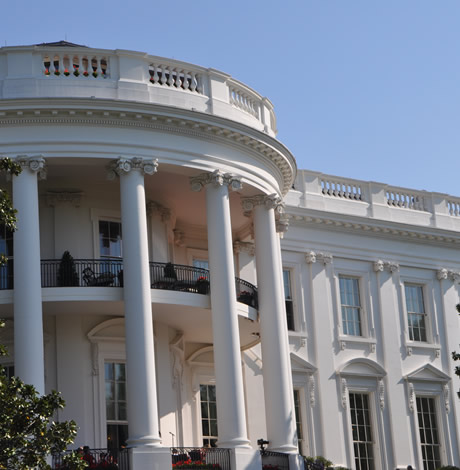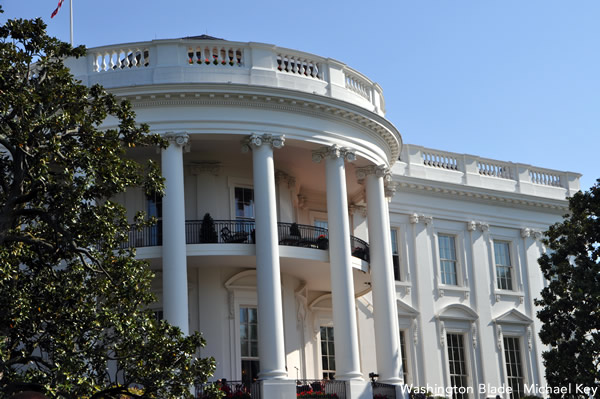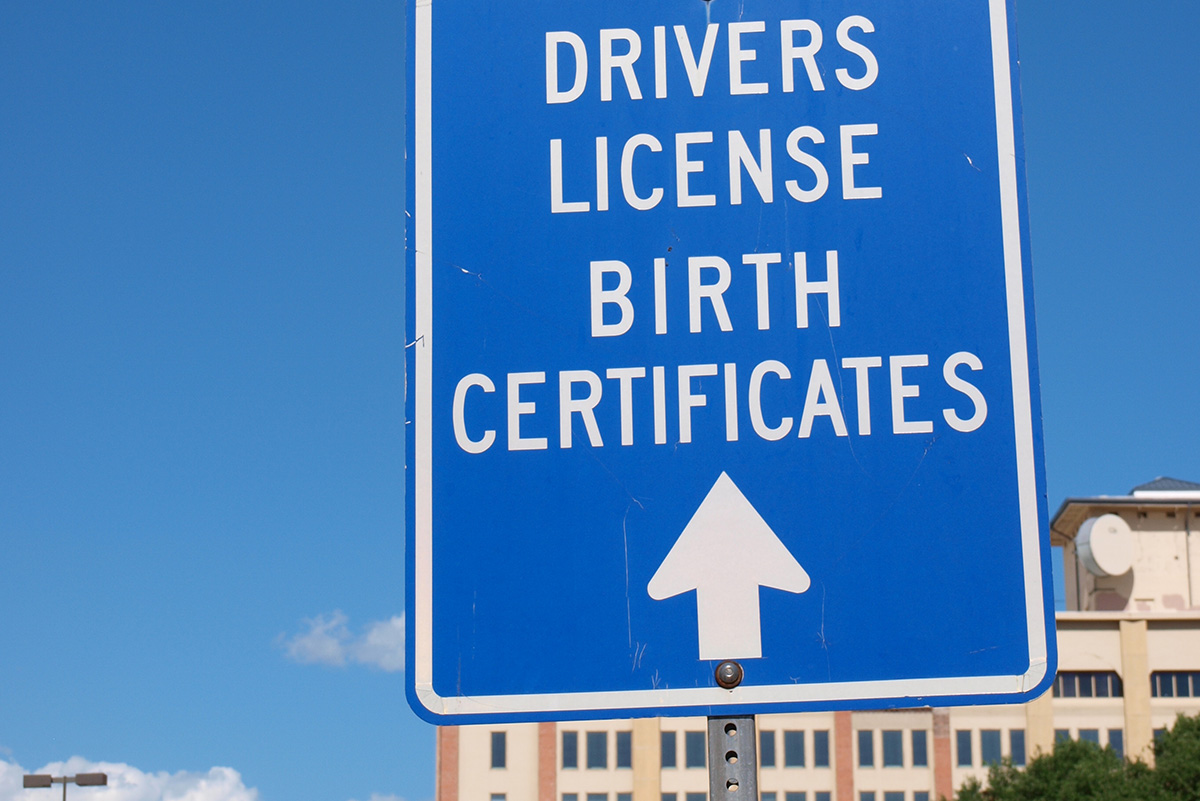Opinions
Small businesses cheer White House regulatory order
New policy restricting federal regulations welcomed by enterprise


(Washington Blade file photo by Michael Key)
President Trump fulfilled a significant campaign pledge on Monday when he signed an executive order referred to as a “one in, two out” policy on new federal regulations.
Requiring “that for every new federal regulation proposed, two must be revoked,” this directive is not as simplistic as summarized. The order targets regulatory costs and not merely the number of individual regulations, and would additionally establish a cost cap on new regulatory mandates. Under the order, any new regulation must be “offset by the elimination of existing costs associated with at least two prior regulations.”
The business community, and smaller enterprise in particular, widely cheered this reform measure and welcomed the priority Trump conveyed to it by acting expeditiously. He had promised only to do so within the first 100 days of his administration.
D.C. was represented at the White House ceremony by Casey Patten of Taylor Gourmet, co-founder of the popular local hoagie eatery with multiple locations open in, or planned for, D.C.’s most prominent and newly developing areas. Patten also attended a meeting with Trump and his executive staff detailing the presidential directive prior to its signing.
The Obama administration was notorious for promulgating a bevy of extensive new rulemaking, including a big batch while headed out the door, which businesses decried as costly burdens hindering growth and employment. Trump, however, was quick to point out, “This is a knock on many presidents preceding me. It got particularly bad in the last eight years, but … it’s a knock on many.”
The president’s initiative mirrors regulatory restrictions in both the U.K. and Canada. Canada’s “One-for-One Rule” applies to the direct costs of the administrative burden for businesses, while the U.K.’s “One-in, Three-Out” requirement assesses all new net regulatory cost implications. Australia has also instituted similar cost-weighing accountability.
Implementation will prove complex and complicated. Imposing a required assessment balancing business costs, however, will inject much-needed discipline in government rulemaking. Forcing an evaluation among bureaucrats followed by public analysis of the financial impact of new rules and administrative requirements will lead to more cost-effective policies.
A “pay as you go” philosophy and commonsense attitude factoring for economic effects of the constant churn of red tape will demand guidelines for creating regulatory balance. Benefit-versus-cost review standards and creating specific regulatory reduction targets – across multiple agencies – will be imperative.
An applicability threshold determination, such as any regulation with an economic impact of $100 million or more, is essential. Capturing an overly broad range of regulations could overwhelm any evaluation system, but tackling too small a range of regulations could produce insufficient business burden reduction.
Any offset requirement will itself tend to curtail the current gusher of new regulations to a reasonable and responsible level. To get there, a conscientious true-cost assessment will be required – inevitably prompting reluctance and resistance by anti-enterprise extremists.
Big government types, of course, will conjure up images of planes falling from the sky and gangrenous slabs of meat littering grocery shelves. What they intentionally overlook, and likely don’t understand, is that most government marketplace interventions have little to do with actual public health and safety, and appropriate limited exceptions in those areas are easily accommodated.
The no-regulation-is-ever-too-onerous adherents possess little ability or, worse, willingness to assess the negative business operating implications and deleterious economic effects of over-regulation. Ensuring accurate and independent assessment of regulatory costs, perhaps by non-governmental sources, may become requisite.
As one Washington small business owner operating several long-popular and highly successful neighborhood restaurants recently proffered in retort to a D.C. Council member pushing for more local business restrictions and legislative rules at a community meeting, “the only new job I’ve been able to create is for an office administrator to cope with the mounting pile of reporting requirements for all the new regulations you keep sending our way.”
It’s a lot to hope, but D.C. should likewise adopt this new sensible national standard.
Mark Lee is a long-time entrepreneur and community business advocate. Follow on Twitter: @MarkLeeDC. Reach him at [email protected].
Opinions
Just say no to the felon in the White House
Democrats, media must do more to oppose Trump’s agenda

We have a clearly deranged, sick, felon as president, who can’t even remember if he had an MRI, or a CT. He says he takes enough aspirin to keep his blood running thin in his veins. He fakes health reports, and lies every time he opens his mouth. His brain appears foggier than Joe Biden’s ever was.
The felon arranged to get a fake Peace Prize from the soccer federation, while taking military actions around the world. He sanctioned American attacks on Nigeria, Iran, Syria, and now on the government, and people, of Venezuela. He has our military attacking boats, claiming they are carrying drugs, with no proof. He interferes in foreign elections, making the United States less safe. He obviously supports Putin in his war against Ukraine, and supports Netanyahu’s destruction of Gaza, and his starvation of the Palestinian people there. Because of all this it’s understandable why he calls his Secretary of Defense, his Secretary of War. That individual being unqualified with no competence, or decency — the perfect toady for the fascists surrounding Trump. He has a Secretary of State in Marco Rubio who clearly has no principles at all. Rubio previously said, “Donald Trump – a con artist – will never get control of this party…We cannot allow a con artist to get access to the nuclear codes of the United States of America.” He compared Trump to a “third-world strong man.” Now as Secretary of State he justifies all the illegal actions the felon takes.
I, and many others, question “Where is Congress in all this?” Do no Republicans in Congress have any cojones? Two Republican woman have criticized Trump — Marjorie Taylor Greene (R-Ga.) and Nancy Mace (R-S.C.). Both on the Epstein files, one on screwing the American people with regard to their health insurance. Both are now out of Congress, still MAGA, but found if you disagree with the felon, he sics his cult on you.
My other question is: When will any in the media really stand up to him? When do mainstream media call out every one of his lies, as he makes them? When do they show any guts, and repeat each day he is deranged? When do they have daily headlines, calling him out on things from his health reports, to lies about the economy? Where are the daily headlines calling out the Republican Congress for its lack of action? Why is there no representative clock on every TV network, ticking off the time Congress doesn’t take back their rightful place as an equal branch of government? When will they call out the Supreme Court, reminding people what Trump’s picks said during their confirmations, versus what they are doing now? When will they actually reclaim ‘The freedom of the press?’
Democrats must continue to speak out. I am aware they have little power in this Congress, but they must not remain silent. We have seen, when they do speak up, we win elections. They help the people to wake up, as they did in recent elections in New Jersey and Virginia. In races as distinct as the mayoralty of Miami, where a Democrat won for the first time in 30 years, and did so in a landslide; and Democrats won two special elections for State Senate in Mississippi. In Georgia, Democrats won two seats on the Georgia Public Service Commission, the first time in 20 years they won a statewide seat. And they won a State Senate seat in Iowa, and the redistricting vote in California.
To continue winning Democrats must remind people every day what the felon, and his fascist cohorts, are doing to destroy their lives. Latinos and Hispanics need a daily reminder, it is the felon who once said he supports them, whose government is now deporting them. Young people must be reminded every day, the felon is destroying the country they will inherit, their future, by denying climate change. Everyone needs daily reminders how he is destroying the health of the country. Ending research grants looking for cures for cancer, Alzheimer’s, Parkinson’s, and HIV/AIDS. Ending research grants into curing childhood diseases, development of mRNA vaccines, and other potential progress to protect Americans, and the world, when the next pandemic occurs, and it will. He is literally killing children by having his government speak out against vaccinations for illnesses like measles, considered eradicated before he came into office.
All of this needs to be headlined each day in our newspapers, and on TV, by the people who still can, and are willing, to do it. Those not bought off by, or afraid of, the felon, and his fascist cohorts. Those who don’t sit with him at Mar-a-Lago, and have become his enablers. We the people need to take to the streets and every time there is an election, use our vote to say to the sick, deranged, felon, and his fascist cohorts, ‘NO MORE’.
Peter Rosenstein is a longtime LGBTQ rights and Democratic Party activist.
Opinions
A reminder that Jan. 6 was ‘textbook terrorism’
Capitol attack started an effort to make civic engagement feel dangerous

Jan. 6 taught us what it costs to defend our families and our communities.
Five years ago, Michael Fanone went to work as a Metropolitan Police Department officer and ended the day fighting for his life while defending the United States Capitol.
After Michael spoke publicly about what he witnessed on Jan. 6, the response was not disagreement or debate. It was intimidation. His mother was swatted in a targeted attack.
We are not immediate family, but we spend holidays together. Our lives overlap. And that was close enough.
Unpaid pizza deliveries were sent to our homes. Strangers showed up demanding payment. Threats followed, by phone and online. The message was unmistakable: Speaking out against Donald Trump would come at a cost, not only for you, but for your family.
As Mayor Muriel Bowser said at the time, Jan. 6 was “textbook terrorism.”
What made this harder was not only the intimidation itself, but the absence of any clear support once the headlines faded. One of us was a Metropolitan Police officer. The other served on the D.C. State Board of Education. If anyone should have known where to turn or had access to guidance or protection, it should have been us. Instead, there were no clear resources to help families deal with harassment, no guidance on what to do when threats followed us home, and no sense that anyone had our backs once the attention moved on. We were left to absorb it quietly and figure it out ourselves.
That experience changed how I understood Jan. 6, not as a single violent day, but as the start of a longer effort to make civic engagement feel dangerous and isolating. You do not have to silence everyone. You only have to make examples of a few.
I know many people in this city recognize that feeling now. The sense that speaking out carries risk. That you cannot afford to lose your job. That scrubbing your social media is safer than risking the consequences. In this context, silence is not necessarily apathy. It is self-preservation.
As a school board member and healthcare navigator, I hear it from families who decide to keep their children at home rather than send them to school. I hear it from families who decide not to re-certify their Medicaid, not because they are ineligible, but because they fear being targeted for using public benefits. These are not abstract concerns. They are everyday decisions shaped by fear of retaliation, fear learned by watching what happens to people who speak out.
More people in our city are now asking the same question my family was forced to confront on Jan. 6: Who will back you when the pressure does not stop, or when it follows you home after work?
This is where the city should step in and say clearly: We will have your back.
Yes, D.C. operates under real constraints. We lack statehood. We cannot deploy the National Guard without federal approval. Congress can overturn our laws.
But even within those limits, choices still matter. Across D.C., neighbors are walking children to school when families fear being targeted by ICE. Passersby are stopping to question why someone is being profiled or detained. These acts do not eliminate risk. They redistribute it, often making the difference between retreat and resistance.
This is not about asking everyone to be louder or braver on their own. It is about whether we are willing, as a city and a community, to make it safer for people to stand up to a bully. That means building real support around those who take risks, so they are not left isolated afterward. It means treating endurance as a shared responsibility, not an individual test.
Our city may not have all the powers it would have as a state, but we still have choices. Right now, residents and city workers who face threats are left to navigate a maze of agencies, hotlines, and informal advice on their own. That gap is a policy choice, and it does not have to remain one. There should be one clear place to go when harassment or threats occur, a single point of contact that helps document what’s happening, connects people to existing resources, and coordinates a response across agencies. Not a new bureaucracy, but a clear front door. The message it would send matters as much as the help itself. You are not on your own, and the city is paying attention beyond the news cycle.
Jan. 6 did not end at the Capitol. It moved into our neighborhoods, our families, and our daily choices. The work now is not to demand a single expression of courage, but to make it safer for all of us to stand up in our own way, together.
Allister Chang is a member of the D.C. State Board Of Education from Ward 2.
Opinions
A dangerous precedent on trans rights in Texas
State compiling list of those who have updated gender on driver’s licenses

Recent reporting from Texas Standard revealed what should alarm every American who values privacy, civil rights, and constitutional restraint: the state of Texas is compiling a list of transgender residents who have attempted to update the gender marker on their driver’s licenses.
Under a policy quietly implemented after August 2024, the Texas Department of Public Safety stopped accepting court orders or amended birth certificates as valid documentation for gender marker changes. Instead, DPS employees were instructed to forward the names and identifying information of applicants seeking such updates to a dedicated internal email channel labeled “Sex Change Court Order.” Those records, which include sensitive personal information, are now being collected internally by the state.
Texas officials have not offered a clear explanation for why this information is being gathered, how long it will be retained, or what it will ultimately be used for. That lack of transparency is deeply troubling on its own. But in the broader context of Texas’s recent legislative trajectory on transgender rights, the implications are far more serious. This is not merely a bureaucratic shift. It is the creation of a targeted registry of transgender people.
The discriminatory nature of this practice is difficult to ignore. Governments are generally prohibited from singling out individuals based on protected characteristics for special monitoring or record-keeping. Since the Supreme Court’s decision in Bostock v. Clayton County, discrimination against transgender people has been understood as a form of sex discrimination under federal law. Compiling a list of people solely because they sought to align their identification documents with their gender identity runs directly counter to that principle.
Even states with restrictive policies around gender marker changes have historically focused on procedural barriers rather than surveillance. Texas has crossed a new threshold by moving from denial to documentation. The state is no longer just refusing recognition; it is actively cataloging those who seek it.
This practice also represents a profound violation of privacy. Driver’s license records contain some of the most sensitive personal data the government holds. Associating that data with a person’s transgender status without consent or statutory justification creates obvious risks, particularly in a political environment where transgender people are already subject to heightened hostility.
The chilling effect is unavoidable. Trans Texans will now have to weigh whether engaging with basic state services could land them on a government list. That fear will discourage people from updating identification, interacting with public agencies, or asserting their legal rights at all. When a government’s actions deter a specific population from participating in civic life, the harm extends well beyond administrative inconvenience.
What makes this development especially dangerous is how neatly it fits into a broader pattern. Texas lawmakers have spent years advancing legislation that narrows the legal definition of sex, restricts access to gender-affirming care, and limits the recognition of transgender people across public institutions. The creation of this list does not stand apart from those efforts; it complements them.
Once such a database exists, it becomes a tool. Data collected today for “administrative review” can be used tomorrow to justify new exclusions, enhanced scrutiny, or punitive enforcement. History shows that registries built around identity rarely remain benign. They become mechanisms of control.
Other states are watching. Texas has increasingly functioned as a testing ground for anti-trans policy, with lawmakers elsewhere ready to replicate measures that survive legal or political backlash. If compiling a list of transgender residents becomes normalized in Texas, it will not remain isolated. Red states searching for new ways to restrict trans lives will take notice.
The constitutional issues raised by this practice are significant. The Equal Protection Clause forbids states from treating similarly situated individuals differently without sufficient justification. Singling out transgender people for special tracking invites heightened scrutiny. There are also serious Fourth Amendment concerns when the government collects and retains sensitive personal information without a clear, lawful purpose.
At stake is not just the safety of transgender Texans, but the integrity of government itself. If states are permitted to quietly assemble lists of disfavored populations, the precedent does not stop with gender identity. It becomes easier to rationalize similar measures against other groups, under different political conditions.
This moment demands scrutiny and resistance. Texas must be compelled to explain why this data is being collected, how it will be protected, and whether it will be shared across agencies. Civil rights organizations and federal authorities should treat this practice as a serious warning sign, not a minor administrative quirk.
The United States has made meaningful progress toward recognizing the rights and dignity of transgender people, but that progress is fragile. It can be reversed not only through sweeping legislation, but through quiet bureaucratic maneuvers that evade public attention.
A list of transgender citizens is not a neutral administrative artifact. It is a signal. It tells a vulnerable population that their government is watching them differently, recording them differently, and preparing to treat them differently. That should concern everyone, regardless of where they live.
If we allow this to stand, Texas will not be the last state to do it.
Isaac Amend is a writer based in the D.C. area. He is a transgender man and was featured in National Geographic’s ‘Gender Revolution’ documentary. He serves on the board of the LGBT Democrats of Virginia. Contact him on Instagram at @isaacamend
-

 Sponsored5 days ago
Sponsored5 days agoSafer Ways to Pay for Online Performances and Queer Events
-

 District of Columbia4 days ago
District of Columbia4 days agoTwo pioneering gay journalists to speak at Thursday event
-

 Colombia3 days ago
Colombia3 days agoBlade travels to Colombia after U.S. forces seize Maduro in Venezuela
-

 a&e features4 days ago
a&e features4 days agoQueer highlights of the 2026 Critics Choice Awards: Aunt Gladys, that ‘Heated Rivalry’ shoutout and more

















